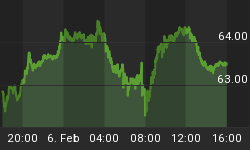What happens when you mix politicians, bankers and private "retail" investors...?
I am reminded of this story by Vince Cable. The UK's Business Secretary seeks to offload the British government's shares in Royal Bank of Scotland (RBS) by giving them to something like 30 million British taxpayers.
Something similar was done with British Gas - using the advertising slogan 'Tell Sid when you see him' - a quarter-century ago. Sid became a caricature of a new breed of private investor in the late '80s, when privatisation was all the rage.
Sid was in due course conned by the bankers.
There were only two million Sids on the British Gas share register. But that was two million people who had to be provided with financial statements, occasional circulars, the means to vote at AGMs, twice yearly dividends and all the other informational paraphernalia that goes with investments in quoted companies. It was an expensive mess which required a massive management effort to organise and control. This was a major distraction and cost for management and a significant competitive disadvantage for the company.
Eventually British Gas decided to reduce the numbers of shareholders. The result was a capital re-organisation which was manipulated by bankers (I'm not saying who) and which stripped the value from Sid while lining professional pockets. It was a fraud on fractional entitlements, designed ostensibly to reduce the huge share register to a manageable size.
Fractional entitlements are what is left when - say - you need a minimum of 100 original shares to get a resulting stock issue, and you have only 70. The bankers will aggregate all the fractions, sell them in the market, and redeem to small investors their proportionate interest. Usually it's a model of fairness.
Sid's British Gas shares were converted into bond packages, with an unusually high minimum nominal amount of £1,000 created expressly to eliminate Sid from the register and make his entitlement fractional. So none of those big bonds were distributed to Sid. Instead, the entire allotment went to the issue managers as fractional entitlements - in theory to be sold for the benefit of those entitled two million Sids, who would receive one final cheque before being ejected from share ownership and expunged from the share register.
But the bankers used stabilisation (legal market-rigging to you and me, and quite common for a big bond issue) to hold the price steady while they offloaded those fractional entitlements into the market. The result was a long-dated inflation-protected bond. This 23-year index-linked stock came at a steady price, yielding 2 full points above market. It saw a steady supply of £200m of Sid's property being bled onto the market by the issue managers, and at a bargain basement price. They even had a ready made excuse for the low price - the sheer weight of supply.
Nevertheless...index-linked stock yielding 4.3% for 23 years? Don't you wonder who bought them?
Well, I admit I did. I read about the proposed BG re-organisation in the Financial Times, I think in October 1999, and I noticed how unusually unbalanced it was. But for the next four months while it was happening there was not a single article on Sid's reorganisation published anywhere. I checked, many times, in the old McCarthy news service - a sort of 20th century 'Google' made of newspaper cuttings, with scissors, glue and photocopiers. This incredibly attractive index-linked stock was being sold with what appeared to be a news blackout, and without any marketing whatsoever. That's when I decided it would be smart to be on the same side as the bankers, and bought it.
I still have those bonds, paying 4.1875% Index Linked until 2022. I paid less than par, and I bundled them into my PEP (now an ISA). So for the last 14 years I have in fact received a handsome 4.3% tax-free yield each year, index-linked against inflation. Over and above that lovely yield, I have watched my capital more than double. So my humble index-linkers have outperformed the equity market by about 100%, and provided me with a healthy income.
I imagine Mr Cable will be able to plug this particular hole in his RBS plan. But I doubt he will outsmart the bankers and plug every hole.















